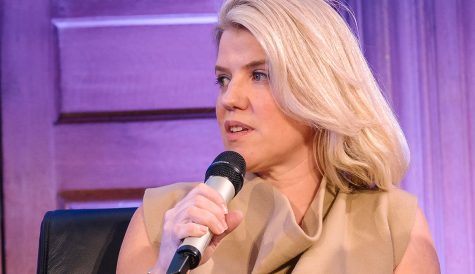
After more than 35 years of operation, TBI is closing its doors and our website will no longer be updated daily. Thank you for all of your support.
TBI Weekly: Why Quibi’s failure isn’t the end for shortform
Sarah Jane Thomson, CEO at global shortform streamer discover.film, digs into the reasons behind Quibi’s closure after just seven months – and considers what it means for the shortform genre as a whole.
So somewhat sadly but unsurprisingly, Quibi has shut up shop almost as quickly as it opened – but what is the reason behind such a catastrophic failure from two such revered executives, and why did the usual investment strategy of backing ‘management management management’ fail so spectacularly?
Quibi was prescriptive and controlling – instead of giving choice to their customers, they dictated when, where and how they could watch their content
Since we first heard about Quibi there have been reams of negative headlines including missed targets, executive departures, legal wranglings and advertiser issues during which founder Jeffrey Katzenberg blamed the pandemic. “I attribute everything that has gone wrong to coronavirus,” said Mr. Katzenberg “Everything.”
In their shutting down statement to employees yesterday, Jeffrey and Quibi CEO Meg Whitman were more remorseful and suggested there may be two potential reasons for its demise, “because the idea itself wasn’t strong enough to justify a standalone streaming service or because of our timing?”
What was the problem?
So was the idea strong enough? Is shortform content the issue?
I should declare my interest here; four years ago, I co-founded discover.film – home of quality shorts – truly believing, as Jeffrey and Meg do, that short film will be universally accepted and desired in a world where attention spans are shortening. We are not alone in believing this, as all the big studios are also invested in producing shortform content – Netflix and Amazon Prime amongst them. In fact, according to research from Ampere, an incredible 11% of upcoming VOD commissions are shortform.
In my view, the essence of their problem was far more profound: ‘put your customers first’, the first law of business.
Not only did they not put the needs of their customers first, they did precisely the opposite. They were prescriptive and controlling – instead of giving choice to their customers, they dictated when, where and how they could watch their content.
Millennials and Gen Z’s (their stated target market) are used to bingeing content, watching free content such as YouTube and sharing content – but Quibi didn’t let them do any of this. Users couldn’t share content, they had to wait for new episodes to upload every night, and most importantly they had to consume the content on their mobile phone.
A wily old boss of mine believed passionately that how consumers wanted to digest content should be their choice – “give it to them however they want it Sarah – if they want it on a banana skin, give it to them on that!”
This advice would have stood Quibi in good stead during the pandemic, as, had their content been available across multiple devices, the pandemic would in fact have been a huge boost for them rather than a hinderance, as consumption for entertainment during the pandemic continues to soar.
Downfall in their triumph
In my opinion, perhaps their best triumph of all was in fact their downfall: their much-used phrase ‘Think Hollywood meets Silicon Valley’ saw investors pile in and give the start up a whopping $1.75bn investment without one subscriber to its name.
Quibi launched without testing, didn’t focus on their customers needs, and their financial model required huge subscriber numbers
And with $1.75bn burning a hole in their pockets, they spent it far too readily. How many subscribers would their 30-second $5.6m Super Bowl ad have needed to convert? What impact would Reece Witherspoon’s $1m-a-minute voiceover needed to have had? Did anyone even do the maths?
Much as I had wanted them to succeed, their downfall has left the market wide open for us. Discover.film hosts the best of the best of short films from all over the world from talented filmmakers who have amazing stories to tell. We give consumers the choice they desire; they can pay or watch with ads, they can share content, and most importantly they can view when and where they want. We will be pre-loaded onto more than 400 million mobile phones, have partnered with the largest airlines in the world, and are viewable on TVs.
I don’t want to be too critical as hindsight is a wonderful thing, but unfortunately in my view, their model was doomed from the start. They launched without testing; didn’t focus on their customers needs; and their financial model required huge subscriber numbers before they would see their way to profitability.
Happily, discover.film is the complete antithesis of Quibi – except of course that we still share the passionate belief that quality shortform is the future of entertainment.
Sorry to see you go Quibi, but we look forward to shining in your shadow.
Sarah Jane Thomson is CEO at discover.film, the global shortform streamer for movies and entertainment that she co-founded in 2016 with Steve Harmston. Thomson previously founded monitoring and auditing business Ebiquity (formerly known as Thomson Intermedia), and has also been behind kids newspaper First News and cyber security firm Priority One.




